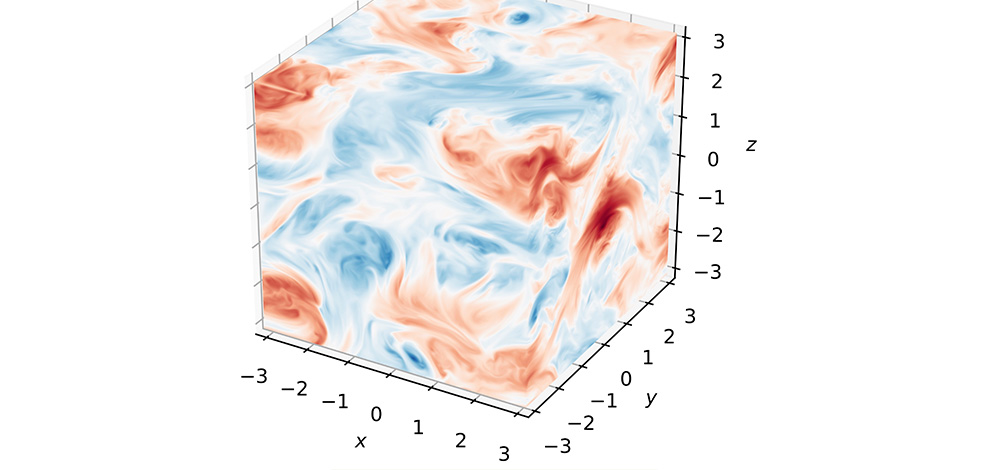On Monday, November 17, 2025, at 12:00 c.t., our next physics colloquium will take place. Prof. Dr. Jennifer Schober, Theoretical Astrophysicist at the Argelander Institute for Astronomy (AIfA) at the University of Bonn will give a talk on "The Magnetic History of the Universe".
Magnetic fields permeate nearly every astrophysical environment, from planets and stars to galaxies and galaxy clusters. In these cosmologically overdense regions, magnetic fields are thought to arise primarily from magnetohydrodynamic (MHD) dynamos. These mechanisms convert turbulent kinetic energy into magnetic energy through the stretching and twisting of field lines. In the first part of this talk, I will present recent advances in our understanding of MHD dynamos. In the second part, I will focus on the vast underdense regions of space, cosmic voids, where blazar observations have revealed the existence of magnetic fields. As voids lack turbulence and therefore the energy source of classical dynamos, these large-scale magnetic fields likely originate in the very early Universe shortly after the Big Bang and therefore offer a unique window into fundamental physics. I will outline key theoretical models of magnetogenesis and present new insights in the pre-recombination evolution of these primordial magnetic fields from state-of-the-art numerical simulations.
Abstract of the lecture by Prof. Schober
Prof. Dr. Ralf-Jürgen Dettmar will give an introduction to the lecture.
The faculty cordially invites all interested parties. The event will take place in lecture hall HZO 20.
Photo: The image shows the spatial structure of the x-component of the magnetic field generated by a macroscopic quantum effect less than a second after the Big Bang (Schober, Rogachevskii & Brandenburg, Physical Review D 105, 2022).


